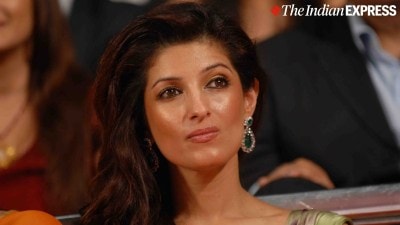Jaya146;s new jinx
A month back Jayalalithaa inaugurated a new Tamil Nadu Bhawan in Delhi, although there were already two other state guest houses in the Capi...

A month back Jayalalithaa inaugurated a new Tamil Nadu Bhawan in Delhi, although there were already two other state guest houses in the Capital. The new bhawan, also located in Chanakyapuri, is smarter and more luxurious than the old ones and it was presumed that it would be reserved only for important officials from the state. One of the earliest guests was the Chief Justice of the Madras High Court, Subhashan Reddy, who stayed at the specially designed VVIP suite. Shortly after his Delhi visit, Reddy found himself transferred to Goa. The State Governor, Rammohan Rao, also lost his job days after a visit to the newly inaugurated guest house.
Word soon spread among superstitious politicians that the new building was jinxed. Chief Minister Jayalalithaa, who inaugurated the bhawan with much fanfare, is considering moving back to the old guest house when next she visits the Capital.
Imran8217;s nine lives
Pakistan celebrity Imran Khan confided to actress and Aids activist Nafisa Ali at a conference in Delhi last week that nine was a recurring number in his life. He was nine when he realised that his ambition in life was to play test cricket for his country. Nine years later he joined the Pakistani team. Another nine years down the line he was appointed team captain. Khan8217;s marriage to the glamorous Jemima lasted exactly nine years. Next year, Khan will have completed nine years in politics and he is hoping that he will finally make it big in politics.
Khan8217;s political instincts are getting sharper. After the External Affairs Ministry granted him a visa to Kashmir during his recent visit, he did not avail of the visa immediately. Khan wants to prepare thoroughly for his Kashmir visit so that he gets the maximum political mileage and his trip is well reported in both the Indian and Pakistani media.
Minister for External Affairs Natwar Singh has written to all ministers, warning them not to interact with foreign heads of mission and other diplomats without the express clearance of his ministry. He emphasised that foreign affairs was the exclusive domain of the MEA and protocol demands that the MEA is always kept in the picture.
Ministers may entertain ambassadors and high commissioners only with the consent of MEA and that too only in the presence of a ministry official. Invitations to political and official functions thrown by foreign embassies, such as national days, should be avoided and in any case MEA8217;s clearance must first be sought. Ministers should not take cognisance of oral invitations from ambassadors to visit their countries and only written invitations, after consultation with the MEA, can be cleared. A copy of the letter stating the norms has also gone out to all state governments as well.
It seems that Singh was irritated to find the Pakistan High Commissioner among 60 diplomats attending a day-long conference organised recently by Andhra Pradesh Chief Minister Y S Rajasekhar Reddy in Delhi to attract FDI for Andhra. The MEA permission had not been sought before inviting the guests. Even more galling was the fact that Petroleum Minister Mani Shankar Aiyar had spoken directly to Sri Lanka President Chandrika Kumaratunga on expanding Indian Oil operations in her country. Being an ex-IFS Indian Foreign Service hand, Mani should have known better, the MEA felt.
Personnel, not Prime Minister
Bureaucrats quip that the PM in Manmohan Singh8217;s designation stands not for Prime Minister but for Personnel Minister. Most of Singh8217;s ministers turn to 10 Janpath rather than Race Course Road for guidance and the Ministry of Personnel, which comes under the PMO, is one of the few ministries over which Singh holds sway. Since he took over as PM, some 35 circulars have been issued to the bureaucracy at his behest. The PM even takes a personal interest in postings and transfers of Joint Secretary-level officers. The PMO8217;s advisories range from admonitions against foreign travel and foreign postings in international bodies to keeping away from agents of business houses and avoiding usage of abbreviations in presentations.
At a meeting last month with senior bureaucrats, Singh urged the bureaucracy to emulate 8216;8216;the brave officers of the Indian Civil Service8217;8217;, leading someone to remark in an aside 8216;8216;in those good old days there were no tainted ministers to cope with.8217;8217;
Marginalised minister
Most Ministers of State get a raw deal from their seniors. But MoS for Home S Regupathy feels particularly marginalised. DMK president M Karunanidhi had ordered him to check with Home Minister Shivraj Patil the name of the new Governor but Patil refused to take his junior into confidence and dismissed him with the remark 8216;8216;You will know later, what is the hurry.8217;8217; For the MoS, it was a question of saving his face with his party colleagues back in Tamil Nadu, but Patil was insensitive to his plight.
Karunanidhi had pushed for Surjit Singh Barnala as Governor since he wanted someone who was close to him but not to the Congress. If a Congressman was appointed Governor there was a chance that he might try and bring Jaya and the Congress back together. Karunanidhi eventually got his way.
- 01
- 02
- 03
- 04
- 05































